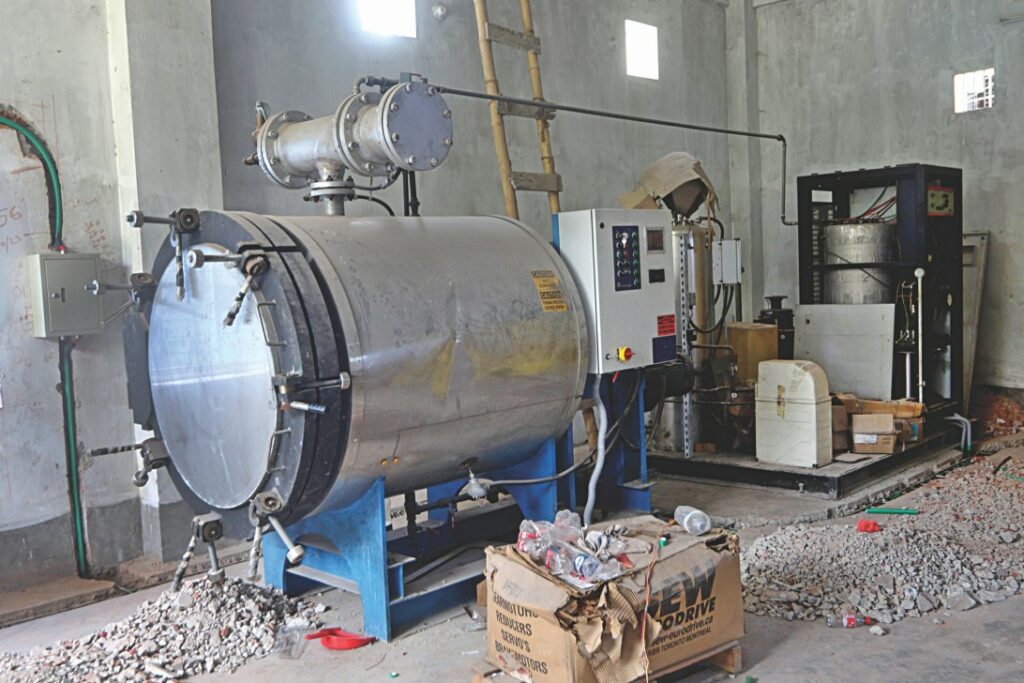Medical Waste: 2 treatment devices stay idle for 4yrs
At a time when safe disposal of medical waste is a nationwide concern, two waste treatment devices have been sitting idle since 2015.
The devices called hydroclave were imported from Canada at a cost of nearly Tk 17 crore. One is at the National Institute of Ophthalmology and Hospital (NIOH) in the capital and the other at Shaheed Sheikh Abu Naser Specialised Hospital in Khulna.
The devices can sterilise medical waste for safe disposal.
“It [the device] was forced upon us. We didn’t want it,” said Rona Rehena, assistant director of NIOH.
The machine was rejected by all other public hospitals before it found a place at NIOH in 2018, she told this correspondent during a recent visit to the hospital in Agargaon.
The first issue was with space. After a long, bureaucratic procedure, a separate one-storey, teen-roofed shed was built to the furthest right corner from the main building for the machine.
The next matter of concern was power supply.
In a letter to the hospital’s director in August, the Public Works Department said, “The medical waste treatment plant should not be connected to the 1,000 KW power sub-station [at the hospital], as almost all of the power coming from the sub-station is used up to run the hospital’s everyday functions.”
So, a separate transformer is required to feed the plant.
But even if all these issues are solved, the 250-bed eye hospital will not be able to make optimum use of the device, said the hospital’s Director Golam Mostafa recently.
Each device can sterilise 350 kg medical waste in one cycle that takes nearly an hour to complete; it can run at least six cycles a day. But the NIOH generates only about 150 kg waste a day, said Rona.
The machine is also collecting dust at the multi-disciplinary tertiary-level hospital in Khulna.
Even though it was installed four years ago, no one has the skills to operate it.
However, the hospital recently sent two employees to Vietnam for training, said Satyakam Chakraborty of the Directorate General of Health Services (DGHS). The machine would be operated soon, he added.
But optimum use of the machine at the 250-bed specialised hospital in Khulna will not be ensured either.
Satyakam said the procurement plan only mentioned that the devoices were “to support waste management”.
The purchase was not done following requisitions from healthcare facilities, as is the practice, said the line director of hospital services management.
Someone in a position of authority at the DGHS might have considered the equipment necessary, he added.
Satyakam also said the entire fund of Tk 16.78 crore had been disbursed from the DGHS immediately after receiving the procurement notification by the Central Medical Stores Depot in 2014.
However, an employee of NewTech GT Ltd, which imported the products from Canada, said anonymously that 70 percent of the payment was made and the rest would be paid once the facilities start using the devices.
The official was seen by this correspondent to pursue the matter in the third week of last month with the eye hospital administration.
The NewTech official was telling Rona of NIOH that his company would not get the commission unless full payment was made.
Our Khulna correspondent contributed to this report.

